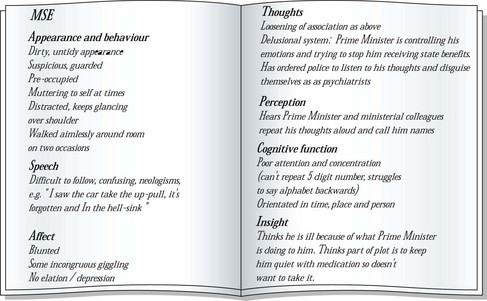Acute and chronic schizophrenia
Acute schizophrenia
An example of a mental state examination of a patient with acute schizophrenia is shown in Figure 1. While most patients present with some of these abnormalities, it would be unusual for them to have quite so many. In fact, some patients may appear completely normal until they begin to discuss their delusions or hallucinations.
Stay updated, free articles. Join our Telegram channel

Full access? Get Clinical Tree



